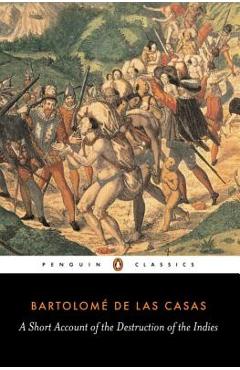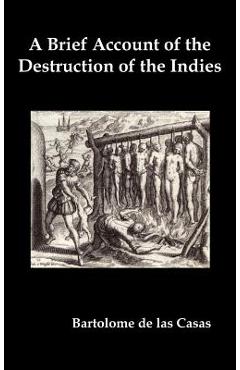A Short Account of the Destruction of the Indies - Bartolome De Las Casas

Detalii A Short Account of the
libris.ro
89.28 Lei
99.2 Lei
History
Bartolome De Las Casas
A Short Account of the - Disponibil la libris.ro
Pe YEO găsești A Short Account of the de la Bartolome De Las Casas, în categoria History.
Indiferent de nevoile tale, A Short Account of the Destruction of the Indies - Bartolome De Las Casas din categoria History îți poate aduce un echilibru perfect între calitate și preț, cu avantaje practice și moderne.
Preț: 89.28 Lei
Caracteristicile produsului A Short Account of the
- Brand: Bartolome De Las Casas
- Categoria: History
- Magazin: libris.ro
- Ultima actualizare: 28-10-2025 01:22:05
Comandă A Short Account of the Online, Simplu și Rapid
Prin intermediul platformei YEO, poți comanda A Short Account of the de la libris.ro rapid și în siguranță. Bucură-te de o experiență de cumpărături online optimizată și descoperă cele mai bune oferte actualizate constant.
Descriere magazin:
In 1542, after years of witnessing Indian suffering and slavery, Bartolome de Las Casas wrote this indictment against European exploitation and mistreatment of the native peoples of the New World. The document was dedicated to Prince Philip of Spain and appeared in published form in 1552. It carries all the urgency of a moment in history when it still seemed possible to reverse the tide. Bartolom de Las Casas was the first and fiercest critic of Spanish colonialism in the New World. An early traveller to the Americas who sailed on one of Columbus\'s voyages, Las Casas was so horrified by the wholesale massacre he witnessed that he dedicated his life to protecting the Indian community. He wrote A Short Account of the Destruction of the Indies in 1542, a shocking catalogue of mass slaughter, torture and slavery, which showed that the evangelizing vision of Columbus had descended under later conquistadors into genocide. Dedicated to Philip II to alert the Castilian Crown to these atrocities and demand that the Indians be entitled to the basic rights of humankind, this passionate work of documentary vividness outraged Europe and contributed to the idea of the Spanish \'Black Legend\' that would last for centuries. For more than seventy years, Penguin has been the leading publisher of classic literature in the English-speaking world. With more than 1,700 titles, Penguin Classics represents a global bookshelf of the best works throughout history and across genres and disciplines. Readers trust the series to provide authoritative texts enhanced by introductions and notes by distinguished scholars and contemporary authors, as well as up-to-date translations by award-winning translators.

Produse asemănătoare

A Short Account of the Destruction of the Indies - Bartolome De Las Casas
![]() libris.ro
libris.ro
Actualizat in 28/10/2025
89.28 Lei

A Short Account of the Destruction of the Indies, Paperback/Bartolome de Las Casas
![]() elefant.ro
elefant.ro
Actualizat in 26/10/2025
56.64 Lei
Produse marca Bartolome De Las Casas

A Short Account of the Destruction of the Indies - Bartolome De Las Casas
![]() libris.ro
libris.ro
Actualizat in 28/10/2025
89.28 Lei



